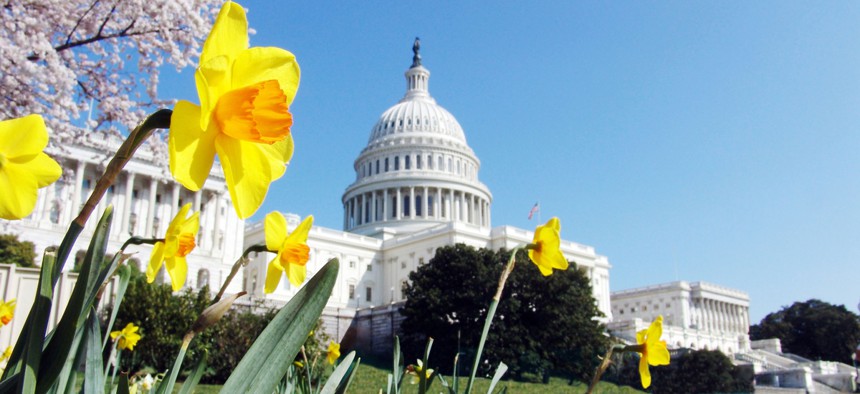Journalists, too, deserve applause and appreciation. American media reported on all of the key elements in the report before its publication: Instigation of social division, the Trump Tower meeting, Paul Manafort’s decision to share polling data, WikiLeaks’ timed release of hacked emails to blunt the effect of the Access Hollywood tape, Eric Prince’s Seychelles meeting, Michael Flynn’s phone call to Russian Ambassador Kislyak, widespread lying to investigators by Trump associates. The only new element I saw in the Russia volume of the Mueller report was that Jared Kushner had devised a “reconciliation plan” for the U.S. and Russia. Journalists, too, have been under constant derogation by the president, yet have continued to provide the public with accurate information and essential insight into the conduct of administration officials.

Ostrovskiy Aleksey/Shutterstock.com
Analysis: Be Grateful for the Mueller Report
The president of the United States is not a traitor. That’s a good thing.
Passover and Easter are religious holidays of gratitude—gratitude for the release of the Jewish people from Egypt, gratitude by Christians for the sacrifice of Jesus in redemption for humanity’s sins. The Trump administration may have cynically calculated that releasing the Mueller report on the eve of a double holiday might dampen interest, but the timing seems oddly fitting, because the special counsel’s findings provide so much to be grateful for.
Undoubtedly, the special counsel’s report on the 2016 election makes for grim reading. A foreign government conducted a years-long campaign to undermine American democracy. It used the openness of our society and the technologies of our creation against us. Russia crafted “a social media campaign designed to provoke and amplify political and social discord in the United States,” paired with criminal acts designed to assist the election of Trump. And they succeeded.
The Russian influence operation should be taught in graduate schools of political science and journalism—and in intelligence training programs. Operatives began in mid-2014 to identify social fissures and build a wide following. They passed as American citizens and organizations while assisting candidates Trump and Bernie Sanders. They shifted as the presidential race narrowed to “a targeted operation that by early 2016 favored candidate Trump and disparaged candidate Clinton.” They orchestrated not just internet activities but also acts in the physical world, including rallies. They intruded into the Clinton campaign and the Democratic National Committee to steal hundreds of thousands of documents, made those documents public via third parties thought to be independent of the Russian government (including WikiLeaks), attempted (in some cases successfully) to access voting machines in 21 U.S. states, and surreptitiously purchased political advertising to affect voting in swing states. The former FBI agent Clint Watts has argued that even shielding Trump from direct contact was by design, because the “standard Russian approach would have been to influence Mr. Trump through surrogates like Mr. Gates and Paul Manafort rather than through direct command.”
Nevertheless, let us be grateful that our worst suspicions were not substantiated: The president of the United States is not a traitor. A liar, a petty and ineffectual chief executive who repeatedly attempted to get others to commit illegal acts and suborn themselves for his protection—those qualities the Mueller investigation proved. But not a traitor. The Mueller investigation unearthed no evidence that the president is in the employ of a hostile foreign power or actively cooperating with a hostile foreign power to harm our country. That it even had to be proved is shocking, but it is nonetheless a relief to know that Trump is not a Manchurian candidate.
The rule of law is being upheld even where politically damaging to the powerful. Special Counsel Robert Mueller determined that Russian activities violated U.S. criminal law and charged those identified with “conspiracy to defraud the United States by undermining through deceptive acts the work of federal agencies charged with regulating foreign influence in U.S. elections, as well as related counts of identity theft.” The investigation concluded that there was no evidence American citizens had conspired or coordinated on those operations, which is also cause for relief (although the report notes a “reasonable argument” that Donald Trump Jr. violated campaign-finance laws).
Another source of relief is the extent to which the agencies of government and civil society worked as intended. The Federal Bureau of Investigation, the Central Intelligence Agency, and the National Security Agency saw the pattern of interference early and properly reported it to both the executive and legislative branches. They were unwavering in their assessments even when the president attempted to suborn them (the deputy attorney general, the FBI director, the NSA director and deputy director all documented those attempts). The Justice Department initiated investigation and sustained it against blistering pressure. Individual failures abounded, but bureaucracies are designed to buffer against individual failure, and they largely succeeded.
Journalists do deserve some condemnation for their unwitting complicity in Russia’s interference campaign. Russian military intelligence rightly assessed that American journalists would be unable to resist the temptation to report on criminally acquired information. All of the major American news outlets regaled readers with stories of hypocrisy and personal quirks (John Podesta’s pasta sauce) that hurt the Democrats. Keeping our government honest requires journalists to receive leaks, and journalism is a business as well as a profession, so they are not to be maligned for writing about what the public will pay to read or watch. But in this new Wild West of cyberespionage, journalists ought to be more introspective about whether to publish stolen information.
I’m also grateful that, through this process, rather unlikely individuals have proved themselves capable of standing on principle. I confess I was surprised by former Attorney General Jeff Sessions’s starchiness in protecting the investigation, as well as by the number of people who simply disregarded presidential direction they considered illegal or immoral. Obviously it’s not ideal that senior government figures felt they had to ignore the elected chief executive, but even some of the least upright people the president has surrounded himself with, it turns out, have a useful sense of self-preservation, maybe a moral compass. Former Defense Secretary Jim Mattis got a standing ovation at the White House Correspondent’s Dinner for his integrity; the Mueller report indicates that figures of less obvious rectitude deserve credit for protecting the republic from the president.







